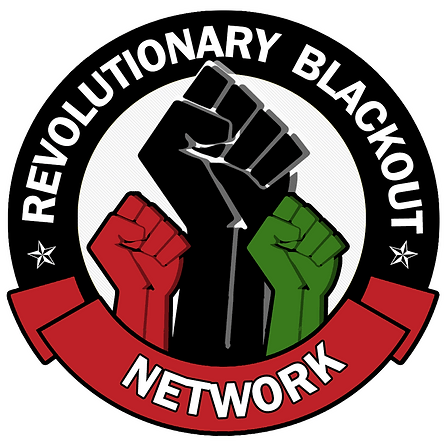Pretty much anything by Michael Parenti is great for people who are starting to educate themselves. Lenin is great as well, in particular I think these three books are essential reading:
- The State and Revolution explains how capitalist democracies are organized and why reformism does not work
- Imperialism, the Highest Stage of Capitalism explains how capitalism evolves over time and the tendency towards monopolies
- “Left-Wing” Communism: an Infantile Disorder explains principled ways to organize and build a movement based on the experience of the Soviet revolution
I wouldn’t say those are the most beginner books.
i asked my friends to read state and revolution, it was definitely too big an ask and they needed a lot of help with context and explaining terms lenin used
Parenti is good for complete beginners, but I find Lenin is fairly accessible overall. His writing is pretty direct and to the point, and I’ve generally had positive feedback from people I’ve convinced to read these books.
Parenti’s incredible. State and rev has a lot of terminology and context you at least have to have spent a bit of time reading memes or in forums to understand. Imperialism is good but a little dense. It has a great point against reformism that I have shared with people, but I wouldn’t expect baby Lefties to read it. I haven’t read “left wing” communism, but it looks a little more advanced (but not inaccessible to those who’d try).
I find state rev is a good starter because a lot of the problems it discusses are precisely the ones people are starting to think about. Why does the government act the way it does, whose interests does it represent, can it be reformed. It does an excellent job dissecting these questions and showing that western democracies are in practice dictatorships of the bourgeoisie and why the dictatorship of the proletariat is the necessary solution. You’re right that there is some terminology and context that’s not as accessible for baby leftists, but you don’t really need to worry about that to get the core points it makes.
I do think that it would be great to take state and rev and to modernize it. Keep all the core arguments, but replace the examples and context with modern examples. It wouldn’t take a huge amount of work to do either as it’s not a really big text.
I agree. You definitely need to teach someone some key terms first, though. In my experience it can go over people’s heads if you don’t.
For sure, and ultimately that’s those of us who already invested the time into learning this stuff are for. :)
The essay “Concessions” on Red Sails really speaks to this concept. All Red Sails essays and excerpts have a bunch of footnotes for great additional reading as well.
People’s history of the US by Howard Zinn,
Blackshirts and Reds by Michael Parenti
People’s history of the US by Howard Zinn
That’s a thick-ass book that even I haven’t had the will to pick up yet. I wouldn’t expect a beginner to read it.
23 things they don’t tell you about capitalism by Ha-Joon Chang
Capitalist Realism by Mark Fisher
Imperialism the highest stage of capitalism by Vladimir Lenin (Red scare propaganda might dissuade him from reading this.)
Revolutionary Suicide by Huey P. Newton (My personal favorite)
The people’s republic of Walmart by Leigh Phillips and Michal Rozworski
All are baby leftist positions in my book, but there are probably more and better works to recommend than just these ones. Even though many will be disliked by MLs for their standard “USSR bad” schtick some of these hold.
First comment is what Michael parenti explains in “global rollback”
Quigley, Soviet legal innovation and the law of the western world speaks directly about the positive influence of the USSR on Western law. Essentially echoing the first comment in the screenshot.
It’s not a happy read for modern westerners unfortunately because the USSR achieved more than we have today under practically impossible conditions and here we are with all this wealth and tech, etc. It shows the difference in motivations. They said, whatever it takes, we will make it happen. Our governments say, we have what it takes but we refuse to make it happen.
edit: added []
Richard Wolff is a good one?
Richard Wolff: Marxism and Communism | Lex Fridman Podcast #295 [2:53:51 | Lex Fridman]
I found a YouTube link in your comment. Here are links to the same video on alternative frontends that protect your privacy:
Great!
Some good beginner books include:
-bin laden’s letter to America (been making the rounds, good for people questioning Palestine)
-ten myths about Israel
-the red deal (good for USians to learn about decolonization)
-everyday utopia (shows other ways of life are possible)
-this changes everything (I’ve yet to read it, but it argues capitalism can’t save us from climate change)
-de-colonial Marxism (explains why Marxism isn’t only for white people)
-a people’s green new deal (why social democracy isn’t enough)
-Rollback! Right-wing power American foreign policy (why both parties are imperialist)
-how 2 take an exam (outdated and anti-Soviet, but a very wide introduction to Marxism)
-Stalin: history and critique of a black legend (explains depictions of Stalin and puts atrocities in context)
-inventing realities or manufacturing consent (explanation of media lies)
-democracy for the few (why “democracy” can’t be liberal)
Fiction:
-looking backward (utopia)
-what is to be done (utopia)
-news from nowhere (utopia)
-the dispossessed
-Justice warriors (satire)
-capital (manga)
Consider the existing beliefs and questions of the person you are talking to. It depends on the person which book will help. Use Anna’s archive for free books. These are pretty general recommendations that are perfect for OP, but good for general use. Others have good suggestions too. Use redsails, the communist manifesto and videos too.
Books are too long for people just tipping their toes in our space, in my opinion.
Get yourself acquainted with the left wing pipeline, and give people stuff they can hook into and push further by themselves:
Confessions of an economic hitman is a good intro to imperialism.








